
Today at the grocery store I bought a bottle of something called "sparkling probiotic drink" because it sounded interesting, contained only stevia as a sweetener (no sugar; no artificial sweeteners), and because I was weak.
The beverage, KeVita brand coconut flavor, touts itself as containing "4 strains of live probiotics." I found this claim appealing because I have the vague idea that probiotics are important, but I can't eat yogurt (no dairy for this girl).
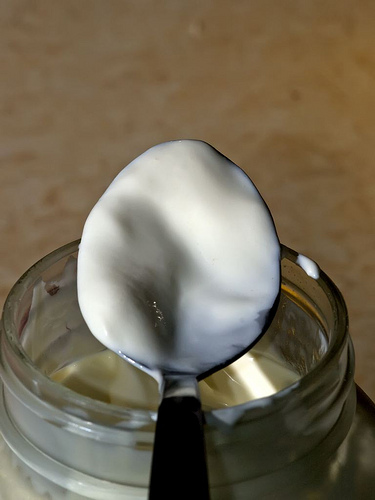
Image courtesy Flickr/ljguitar
As long as you don't think about the fact that your beverage contains a bunch of live bacteria, it was great. It had a small amount of sparkling to it (honestly I barely would have noticed, but I am a big fan of carbonated drinks), some sweetness, and a pleasantly mild coconut flavor. It also had some milky sediment at the bottom of the bottle, which I also tried not to think about.
KeVita contains strains of Bacillus coagulans, L. paracasei, L. plantarum, and L. rhamnosus. I was wrong to think it would be a replacement for yogurt, which contains an entirely different collection of bacteria. That's the first lesson of probiotics: every strain is different, and you won't find them all in the same place.
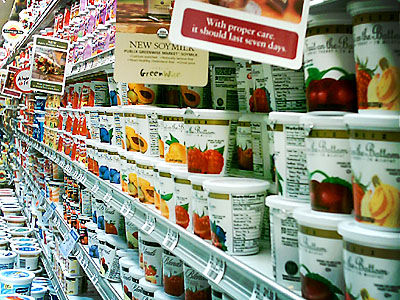
Image courtesy Flickr/Lynda Giddens
What is a probiotic?
Simply put, a probiotic is a strain of bacteria (biotics) which have been deemed helpful to the human body (pro). If that sounds vague, it's because the term "probiotic" is indeed very vague. The claims are largely unsubstantiated, and frequently overinflated by manufacturers.
In fact, there is no general agreement on which bacteria are probiotics and which aren't. The term is essentially meaningless. Even in the most well-researched bacteria, there is little scientific consensus on their beneficial results.
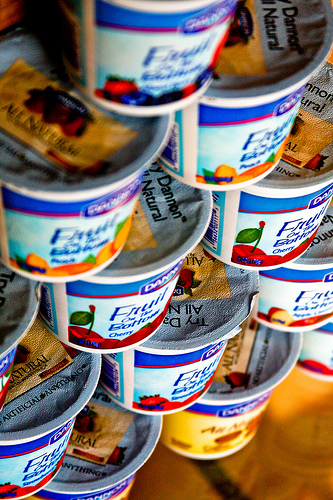
Image courtesy Flickr/Jason McKim
What do probiotics do?
The list of the purported beneficial effects of probiotics is long and largely unscientific. But at the same time, it's very impressive. And the fact is that we have not studied probiotics very thoroughly, so there is a whole world of possibility here.
On the up side, it is unlikely that probiotics will harm you. That's more than I can say for a lot of pseudoscientific products.
Here is a list of the current probiotic research and results on Wikipedia, with links to all the studies. I like this list because it is very conservative in its description of effects.
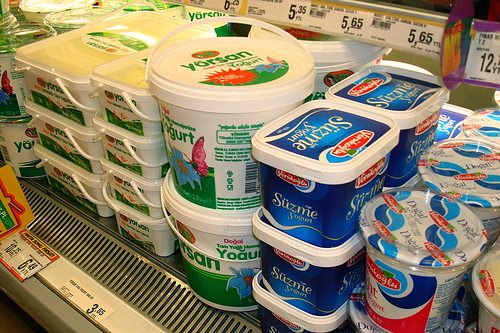
Image courtesy Flickr/unionpearl
Where do you get probiotics?
There are dried and powdered supplements, but I would be skeptical of those. It seems that most of the effects of probiotics happen when the bacteria colonize your digestive system (along with all the other helpful bacteria in your gut). Is it really going to work if you swallow a bunch of dead bacteria? The effects of bacteria in the human system are the result of a symbiotic relationship, which is only going to work if the other guy (the bacteria) are alive and thriving.
That's the biggest objection to the idea of consuming probiotics, actually. Even living bacteria may not make it through the acid pit of your stomach in order to colonize the safer territory of your intestines beyond. Just because lab tests show that the presence of a particular strain of bacteria can help prevent gastrointestinal problems, it doesn't necessarily follow that eating that same bacteria will have the same effects.
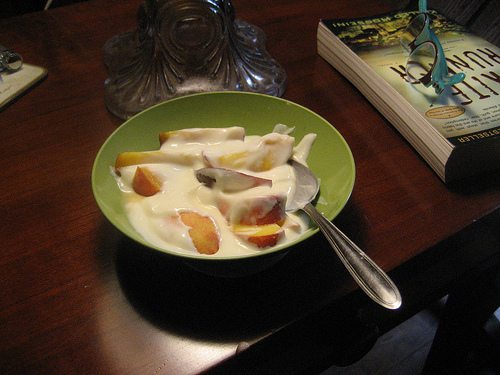
Image courtesy Flickr/mmnicolet
Then you get into the problem of bacterial cultures and strains. Every lab, every company has their own strain of bacteria. Whether that's what they wanted or not, the rules of evolution state that each isolated culture of bacteria will evolve away from the main branch. Thus, the bacteria being tested in one particular lab may be completely different from the same species of bacteria used by a particular yogurt company.
That being said, helpful bacteria are found in many fermented products, including yogurt, kefir, kimchi, buttermilk, and yogurt. If you are hunting for bacteria in yogurt, read the label carefully. Many highly processed yogurts have been heat pasteurized which kills the bacteria. Look for the phrase "contains live and active cultures."
By the way, I learned from a yogurt-making phase a while back that buying organic plain yogurt is not an advantage. Perhaps because these yogurts are less popular, and therefore sit in the dairy case longer. I had the best success with using plain yogurts from Yoplait and Dannon to kick-start my cultures.
Main image courtesy Flickr/rikhei

1 comments